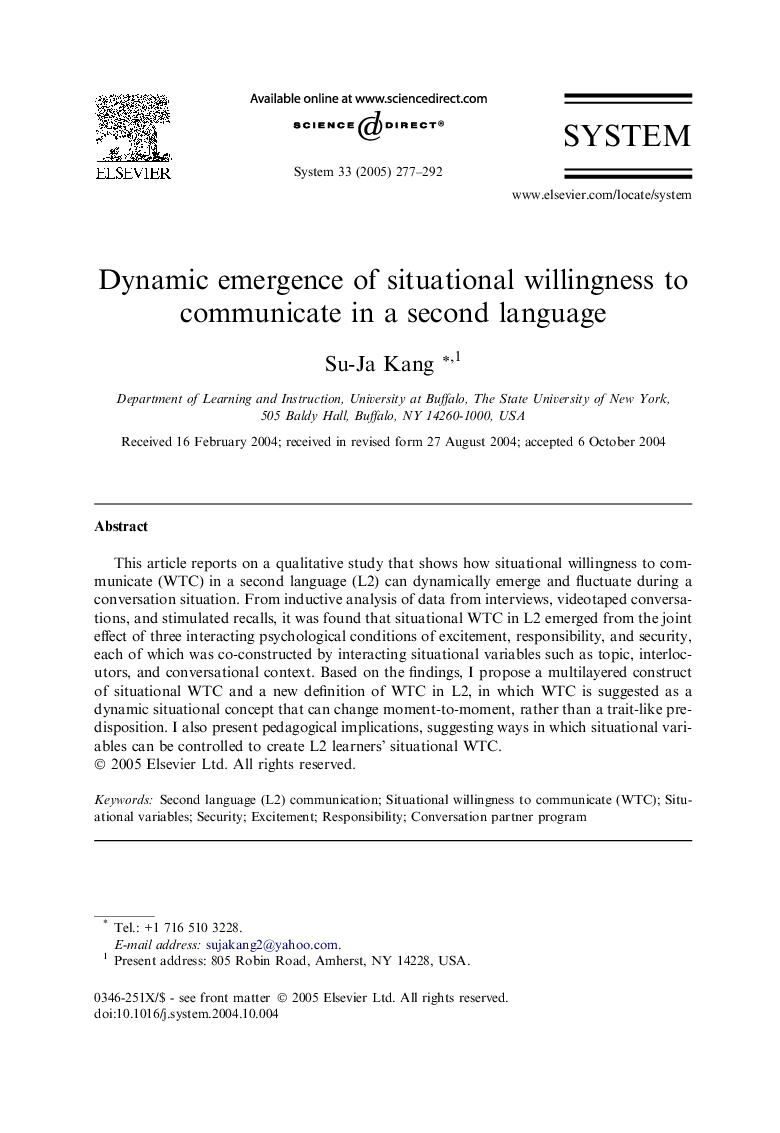| Article ID | Journal | Published Year | Pages | File Type |
|---|---|---|---|---|
| 10319041 | System | 2005 | 16 Pages |
Abstract
This article reports on a qualitative study that shows how situational willingness to communicate (WTC) in a second language (L2) can dynamically emerge and fluctuate during a conversation situation. From inductive analysis of data from interviews, videotaped conversations, and stimulated recalls, it was found that situational WTC in L2 emerged from the joint effect of three interacting psychological conditions of excitement, responsibility, and security, each of which was co-constructed by interacting situational variables such as topic, interlocutors, and conversational context. Based on the findings, I propose a multilayered construct of situational WTC and a new definition of WTC in L2, in which WTC is suggested as a dynamic situational concept that can change moment-to-moment, rather than a trait-like predisposition. I also present pedagogical implications, suggesting ways in which situational variables can be controlled to create L2 learners' situational WTC.
Related Topics
Social Sciences and Humanities
Arts and Humanities
Language and Linguistics
Authors
Su-Ja Kang,
